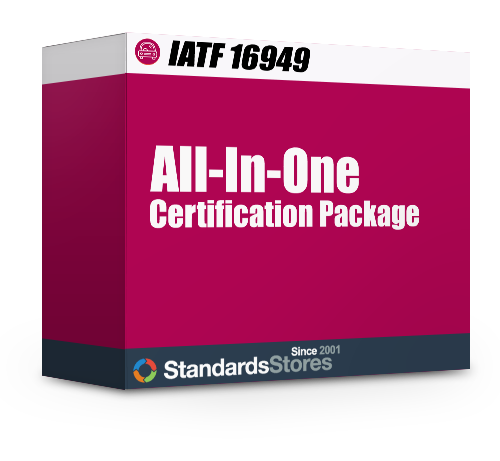Leadership’s Responsibilities in the 16949 2016 Quality Management System
- Top management is required to manage, not delegate, quality
- Leadership has defined responsibilities for securing quality execution
- Importance is put on customer focus with specific practices ranging from support for customer regulatory requirements, risks, and enhancing customer satisfaction
- The responsibilities of management include quality policy establishment, communication and organization-wide responsibility and authority
Section 5 Leadership
Section 5.1: Leadership and Commitment
Changes between ISO/TS 16949 and IATF 16949 are as listed below:
- Quality management can no longer be delegated. The Organization’s leaders are responsible for the QMS being implemented and effective.
- The established quality policy and quality objectives must be compatible with the context and strategic direction of the organization.
- Leadership must ensure integration of the QMS into the organization’s business processes.
- Leadership must assign the responsibilities and authorities for ensuring that processes are delivering their intended outputs.
Expanding upon this, this section requires organization leadership to:
- Implement the process approach and risk-based thinking
- Provide the necessary support to fully implement and sustain the QMS
- Communicating to the organization the importance of conforming to QMS requirements
- Ensuring the QMS meets its goals
- Engage, direct, and support individuals contributing to the QMS (i.e. Provide employees with training)
- Create a culture of continuous improvement
Leadership is required to display their commitment to customer focus, specifically by fully understanding and monitoring customer requirements and satisfaction. The requirements for Leadership regarding customer focus include:
- Determine, understand and consistently meet customer and applicable statutory and regulatory requirements
- Determine and address risks and opportunities around product and service conformity and enhancing customer satisfaction
- Maintain focus on enhancing customer satisfaction
5.1.1.1 Corporate Responsibility
The organization is required to define and implement corporate responsibility policies. This includes an anti-bribery policy, an employee code of conduct and an ethics escalation policy.
5.1.1.2 Process effectiveness and efficiency
Top management must review the product realization processes and support processes to evaluate and improve their effectiveness and efficiency.
5.1.1.3. Process Owners
Top management is required to identify process owners who are responsible for managing the organization’s processes and related outputs. Process owners are required to understand their roles and be competent to perform assigned roles.
Leadership is to establish, communicate and enforce a quality policy that accomplishes the following:
- Is in line with the purpose, context, and strategic direction of the organization
- Provides a framework for quality objectives
- Includes a commitment to satisfy applicable requirements
- Includes a commitment to continual improvement
Section 5.3: Organizational Roles, Responsibilities and Authorities
Responsibilities and authorities for relevant roles must be assigned, communicated and understood within the organization. Specifically, roles that impact the organization’s ability to meet the requirements, ensure processes are delivering their intended outputs, report QMS performance and improvement, plan and implement changes to the QMS, and promote customer focus.
5.3.1 Organizational roles, responsibilities and authorities – supplemental
Top management is required to assign personnel with the responsibility and author to certify that customer requirements are met. All assignments must be documented, including but not limited to the selection of special characteristics, setting quality objectives and quality training, corrective and preventative actions, product design and development, capacity analysis, logistics information, customer scorecards and customer portals.
5.3.2 Responsibility and authority for product requirements and corrective actions
a. Personnel which is responsible for conformity to product requirements has the authority to stop shipment and stop production if necessary to correct quality problems.
b. Any personnel with authority and/or responsibility for corrective action are quickly informed of any products or processes that do not conform to requirements.
c. Production operations across all shifts are staffed with workers in charge of, or delegated responsibility for securing conformity to requirements.
Please note that certain text from the ISO 9001 standard is only used for instructional purposes. Standard Stores recognizes and respects the International Organization for Standardization (ISO) copyright and intellectual property guidelines.


